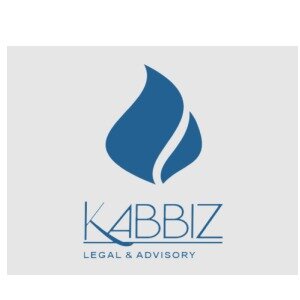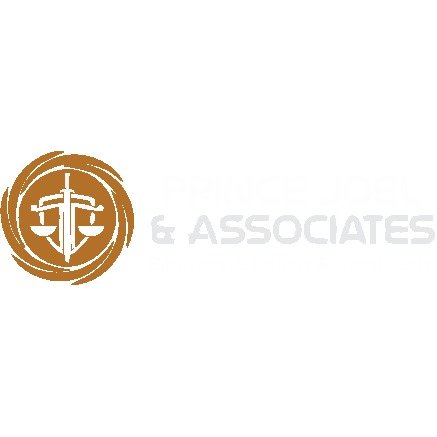Best Financial Services Regulation Lawyers in Onitsha
Share your needs with us, get contacted by law firms.
Free. Takes 2 min.
List of the best lawyers in Onitsha, Nigeria
About Financial Services Regulation Law in Onitsha, Nigeria
Financial Services Regulation in Onitsha, Nigeria, governs the operation and supervision of financial service providers within the region. It aims to ensure the integrity and stability of the financial system while protecting consumer interests. This regulatory framework covers banks, insurance companies, investment firms, and other financial institutions, ensuring they adhere to the legal standards set by both national and regional authorities such as the Central Bank of Nigeria (CBN) and the Securities and Exchange Commission (SEC). By maintaining transparency and accountability, these regulations foster a healthy financial market environment that benefits both businesses and consumers.
Why You May Need a Lawyer
Seeking legal assistance in the field of Financial Services Regulation can be crucial in various scenarios, including:
- Dispute Resolution: Resolving conflicts with financial institutions over contracts or services.
- Compliance Advice: Ensuring your business adheres to the complex regulatory standards governing financial transactions.
- Mergers and Acquisitions: Navigating the regulatory requirements for acquiring or merging with another financial service provider.
- Consumer Protection: Defending against unfair practices by financial institutions.
- Regulatory Investigations: Preparing for or responding to inquiries by regulatory bodies.
Local Laws Overview
In Onitsha, financial regulations are largely influenced by national laws but may also reflect regional economic activities. Key aspects include:
- CBN Regulations: These set the standard for banking operations, including licensing, interest rates, and credit allocation.
- SEC Guidelines: These rules oversee the capital market operations to protect investors and maintain market integrity.
- Money Laundering Prohibition Act: Enforced to prevent illegal financial activities and ensure that funds entering the financial system are clean.
- Insurance Act: Governs insurance policies and companies, ensuring they operate with integrity and transparency.
Frequently Asked Questions
What is the role of the Central Bank of Nigeria in financial regulation?
The Central Bank of Nigeria regulates banks and other financial institutions, ensuring monetary stability and the promotion of a sound financial system in Nigeria.
How does the SEC protect investors?
The SEC enforces rules to prevent fraudulent practices in the securities market, ensuring that investors make well-informed decisions in a fair and transparent market.
What should I do if I suspect my bank is engaging in unfair practices?
Consider consulting with a financial services lawyer to better understand your legal rights and explore potential actions against the bank.
What are the penalties for non-compliance with financial regulations?
Penalties can range from fines and sanctions to the revocation of licenses and criminal charges, depending on the severity of the non-compliance.
How can businesses ensure compliance with financial regulations?
Businesses can ensure compliance by implementing robust internal controls, regular audits, and seeking ongoing legal advice to stay updated on regulatory changes.
Are there specific financial regulations for startups?
Startups must comply with general financial regulations applicable to their sector and may benefit from consulting a lawyer to understand any specific requirements.
Can a consumer file a lawsuit against a financial institution?
Yes, consumers can file lawsuits if they believe a financial institution has violated their rights. Legal advice is recommended to assess the situation properly.
What is the process of obtaining a banking license in Onitsha?
Acquiring a banking license involves meeting CBN requirements, providing necessary documentation, and undergoing a stringent approval process to ensure compliance with regulatory standards.
Is data protection part of financial regulation?
Yes, data protection regulations are increasingly important in financial services to safeguard customers' personal and financial information from unauthorized access and breaches.
How are cross-border financial services regulated?
Cross-border regulations involve compliance with international standards and local laws to ensure the legality and security of transactions across jurisdictions.
Additional Resources
For those seeking more information or assistance, consider the following resources:
- Central Bank of Nigeria (CBN): Oversees monetary policy and financial institution licensing.
- Securities and Exchange Commission (SEC): Regulates the securities market.
- National Insurance Commission: Supervises insurance practices and companies.
- Nigeria Deposit Insurance Corporation (NDIC): Provides deposit insurance to banking customers.
- Financial Service Lawyers Network: Connects individuals with professionals specialized in financial regulations.
Next Steps
If you require legal assistance in the field of Financial Services Regulation:
- Identify Your Issue: Clearly define the regulatory issue or concern you face.
- Consult a Lawyer: Reach out to a specialized lawyer with experience in financial services regulation to discuss your matter.
- Prepare Documentation: Gather all relevant documents and records related to your case.
- Stay Informed: Keep abreast of any changes in local and national financial regulations that may affect your situation.
- Engage Regularly: Maintain open communication with your legal advisor to stay informed of the progress and understand the implications of any decisions.
Lawzana helps you find the best lawyers and law firms in Onitsha through a curated and pre-screened list of qualified legal professionals. Our platform offers rankings and detailed profiles of attorneys and law firms, allowing you to compare based on practice areas, including Financial Services Regulation, experience, and client feedback.
Each profile includes a description of the firm's areas of practice, client reviews, team members and partners, year of establishment, spoken languages, office locations, contact information, social media presence, and any published articles or resources. Most firms on our platform speak English and are experienced in both local and international legal matters.
Get a quote from top-rated law firms in Onitsha, Nigeria — quickly, securely, and without unnecessary hassle.
Disclaimer:
The information provided on this page is for general informational purposes only and does not constitute legal advice. While we strive to ensure the accuracy and relevance of the content, legal information may change over time, and interpretations of the law can vary. You should always consult with a qualified legal professional for advice specific to your situation.
We disclaim all liability for actions taken or not taken based on the content of this page. If you believe any information is incorrect or outdated, please contact us, and we will review and update it where appropriate.












